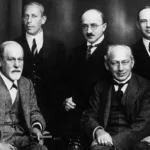Pseudotherapies are experiences offered as if they were a form of therapy with supposed benefits for physical and/or mental health, whose application techniques are not based on scientific evidence nor do they have basic safety standards for the client.
Despite their lack of scientific rigor, these therapies are usually presented as scientific and their promoters can deceive their clients into believing that they are therapies with guaranteed successful results.
In this sense, the use of pseudotherapies to the detriment of approved and specialized health services represents a real social problem and a risk to the health of those who request them, as well as to their families and any other person in their closest environment. to become a user of them.
To learn more about this alarming public health problem, below We will delve into the main harmful effects that pseudotherapies have in those people who put themselves in the hands of these false health professionals.
What are the main harmful effects of pseudotherapies on people?
Currently, pseudosciences are going through one of their greatest moments of popularity around the world, due in part to the misinformation that exists among the general population about health and also to the ease with which everything can be shared. type of medical hoaxes through social networks, chat groups, etc. As a result, many people end up being attracted to these types of deceptive practices.
There are many negative and harmful effects that pseudotherapies have on people who decide to go to them to treat any type of problem, below we review the most important ones.
1. False sense of security
One of the main characteristics of pseudotherapies and the people who promote them is that they tend to give a false sensation of taking care of the health of the patient or person who has placed themselves in the hands of said therapist.
Given this false sense of security, many people may come to believe that psychotherapy is capable of curing their health problems that is why they decide to believe in the treatment with blind faith and continue spending the money necessary to follow it.
2. Damage to one’s own health
Another of the main effects of pseudotherapies is the impact on both the physical and emotional health of the people who request them believing that they will be good for them or their family members.
These unscientific therapies can harm our health and also that of those around us, having an effect opposite to the desired one. by not being based on scientifically validated procedures and relying heavily on improvisations of the “professional”.
3. Economic damage
Many of the sellers of this type of pseudotherapies have financial gain as their main motivation, which is why they sell their miraculous remedies to any desperate person who is willing to pay an exorbitant price to cure her illness or that of her sick family member.
That is why people who engage in this type of pseudoscience end up losing large sums of money invested in alternative therapy without realizing the deception in which they have participated.
4. They discourage people from seeking professional medical help
The application of pseudotherapies to cure any disorder in a person or in their family members usually has disastrous effects that are nothing like the effects expected by users of this type of therapy.
After living a bad experience with pseudotherapies and experiencing their lack of success, many people may end up disappointed or traumatized and decide never to put themselves in the hands of real professional therapists.
5. Possible impact at the social and family level
Some pseudotherapies go beyond the format of sessions with a “specialist” and offer, on the contrary, a collective experience and a new philosophy of life, or even a religion. Thus, some proposals for false therapies are offered through participation in collective events of all kinds and end up functioning as true sects in which mental control of its members is practiced although they do not require constant attendance at meetings: WhatsApp groups are promoted in which they talk about conspiracy theories, mystical experiences, etc.
During participation in this type of events, many people may end up distancing themselves from their family or social environment in response to the demands of said sect, due to the ideological polarization that these groups based on psychological manipulation promote.
6. Development of psychological alterations
Some pseudotherapies based on intermittent fasting or the intake of miraculous juices or other types of products can end up generating eating disorders in people, since alter the behavior of users and their relationship with food.
In addition to that, many people who are victims of all types of pseudotherapies can end up developing cases of anxiety, depression, stress, low self-esteem or disorders of all kinds.









